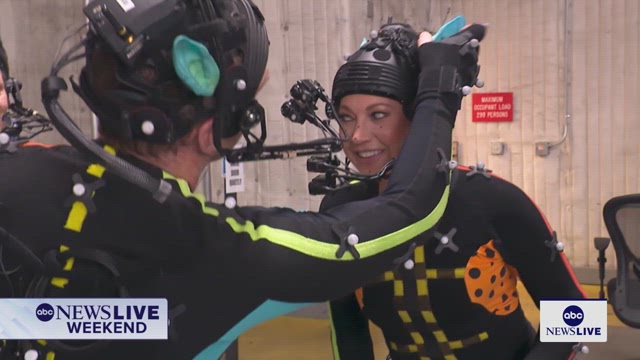Excerpt: 'Assault on Reason'
May 22, 2007 — -- Read an excerpt of Al Gore's book, "Assault on Reason," below.
Chapter One: The Politics of Fear
Fear is the most powerful enemy of reason. Both fear and reason are essential to human survival, but the relationship between them is unbalanced. Reason may sometimes dissipate fear, but fear frequently shuts down reason. As Edmund Burke wrote in England twenty years before the American Revolution, "No passion so effectually robs the mind of all its powers of acting and reasoning as fear."
Our Founders had a healthy respect for the threat fear poses to reason. They knew that, under the right circumstances, fear can trigger the temptation to surrender freedom to a demagogue promising strength and security in return. They worried that when fear displaces reason, the result is often irrational hatred and division. As Justice Louis D. Brandeis later wrote: "Men feared witches and burnt women."Understanding this unequal relationship between fear and reason was crucial to the design of American self-government.
Our Founders rejected direct democracy because of concerns that fear might overwhelm reflective thought. But they counted heavily on the ability of a "well-informed citizenry" to reason together in ways that would minimize the destructive impact of illusory, exaggerated, or excessive fears. "When a man seriously reflects on the precariousness of human affairs, he will become convinced that it is infinitely wiser and safer to form a constitution of our own in a cool deliberate manner, while we have it in our power," wrote Thomas Paine in his legendary pamphlet Common Sense, specifically warning that the Founders should not take the risk of waiting until some fear seized the public imagination, in which event their reasoning processes would be hampered.
Nations succeed or fail and define their essential character by the way they challenge the unknown and cope with fear. And much depends on the quality of their leadership. If leaders exploit public fears to herd people in directions they might not otherwise choose, then fear itself can quickly become a self-perpetuating and freewheeling force that drains national will and weakens national character, diverting attention from real threats deserving of healthy and appropriate fear and sowing confusion about the essential choices that every nation must constantly make about its future.
Leadership means inspiring us to manage through our fears. Demagoguery means exploiting our fears for political gain. There is a crucial difference.
Fear and anxiety have always been a part of life and always will be. Fear is ubiquitous and universal in every human society. It is a normal part of the human condition. And it has always been an enemy of reason. The Roman philosopher and rhetoric teacher Lactantius wrote, "Where fear is present, wisdom cannot be."We have always defined progress by our success in managing through our fears. Christopher Columbus, Meriwether Lewis and William Clark, Susan B. Anthony, and Neil Armstrong all found success by challenging the unknown and overcoming fear with courage and a sense of proportion that helped them overcome legitimate fears without being distracted by distorted and illusory fears.
The Founders of our country faced dire threats. If they failed in their endeavors, they would have been hanged as traitors. The very existence of our country was at risk. Yet in the teeth of those dangers, they insisted on establishing the freedoms that became the Bill of Rights. Are members of Congress today in more danger than were their predecessors when the British army marched on the Capitol?
Are the dangers we now face so much greater than those that led Franklin Delano Roosevelt to famously remind us that the only thing we have to fear is fear itself? Is America in more danger now than when we faced worldwide fascism on the march -- when our fathers fought and won a world war on two fronts simultaneously?
Is the world more dangerous than when we faced an ideological enemy with thousands of missiles poised to annihilate our country at a moment's notice? Fifty years ago, when the nuclear arms race with the Soviet Union was raising tensions in the world and McCarthyism was threatening our liberties at home, President Dwight Eisenhower belatedly said, "Any who act as if freedom's defenses are to be found in suppression and suspicion and fear confess a doctrine that is alien to America." Edward R. Murrow, whose courageous journalism was assaulted by Senator Joseph McCarthy, declared, "We will not be driven by fear into an age of unreason."It is simply an insult to those who came before us and sacrificed so much on our behalf to imply that we have more to be fearful of than they did. In spite of the dangers they confronted, they faithfully protected our freedoms. It is up to us to do the same.
Yet something is palpably different today. Why in the early years of the twenty-first century are we so much more vulnerable to the politics of fear? There have always been leaders willing to fan public anxieties in order to present themselves as the protectors of the fearful. Demagogues have always promised security in return for the surrender of freedom. Why do we seem to be responding differently today?The single most surprising new element in America's national conversation is the prominence and intensity of constant fear. Moreover, there is an uncharacteristic and persistent confusion about the sources of that fear; we seem to be having unusual difficulty in distinguishing between illusory threats and legitimate ones.
It is a serious indictment of the present quality of our political discourse that almost three-quarters of all Americans were so easily led to believe that Saddam Hussein was personally responsible for the attacks of September 11, 2001, and that so many Americans still believe that most of the hijackers on September 11 were Iraqis. And it is an indictment of the way our democracy is currently operating that more than 40 percent were so easily convinced that Iraq did in fact have nuclear weapons, even after the most important evidence presented -- classified documents that depicted an attempt by Saddam Hussein's regime to purchase yellowcake uranium from the country of Niger -- was revealed to have been forged.
Clearly, the current administration has misused fear to manipulate the political process, and I will return to this issue later in this chapter. But I think a far more important question is: How could our nation have become so uncharacteristically vulnerable to such an effective use of fear to manipulate our politics?
A free press is supposed to function as our democracy's immune system against such gross errors of fact and understanding. As Thomas Jefferson once said, "Error of opinion may be tolerated where reason is left free to combat it." So what happened? Why does our immune system no longer operate as it once did? For one thing, there's been a dramatic change in the nature of what philosopher Jürgen Habermas has described as "the structure of the public forum." As I described in the introduction, the public sphere is simply no longer as open to the vigorous and free exchange of ideas from individuals as it was when America was founded.
When errors of fact and judgment are no longer caught and neutralized by the nation's immune system, it is time to examine the problem and to work toward good health in our political discourse. In order to do this, we need to start paying more attention to new discoveries about the way fear affects the thinking process. And, in fact, recent advances in neuroscience offer new and interesting insights into the nature of fear.
For most of the last century, the human brain was studied almost exclusively in the context of accidents and unusual head injuries. Doctors would note the part of the brain taken out by the injury and then, after careful observation of strange behaviors, would slowly determine what functions had been controlled by the injured part. But now scientists are able to observe healthy brains in normal operation, measuring current, blood flow, and chemical activity that indicate which part of the brain is most active at a particular time.
New technologies in any field can have a revolutionizing impact. When Galileo used new and more powerful telescopes to study the heavens in greater detail, he was able to see the movements of the planets around the sun and the movements of Jupiter's moons around Jupiter in order to describe in compelling detail the comprehensive new model of the solar system first proposed by Copernicus. It was the new technology itself that empowered Galileo to describe a reality that was impossible to perceive so clearly until the new technology of the telescope made it possible.
In almost exactly the same way, the new technology called "functional magnetic resonance imaging," or FMRI, has revolutionized the ability of neuroscientists to look inside the operations of a living human brain and observe which regions of the brain are being used at which times and in response to which stimuli. Just as Galileo could suddenly see the moons of Jupiter, neuroscientists are now able for the first time to see the proper relationships among areas of the brain such as the amygdala and the hippocampus and the neocortex, to name only a few.
An entirely new understanding of the brain is coming forth, and one of the areas that has been richest in discoveries has to do with how we as human beings function in relation to fear. The implications for democracy are profound.
In a democracy, the common (if usually unstated) assumption is that citizens operate as rational human beings, reasoning their way through the problems presented to them as if every question could be analyzed rationally and debated fairly until there is a well-reasoned collective conclusion. But the new research demonstrates that, of course, this is not the way it works at all.
One of the world's leading neuroscientists, Dr. Vilayanur S. Ramachandran, has written, "Our mental life is governed mainly by a cauldron of emotions, motives and desires which we are barely conscious of, and what we call our conscious life is usually an elaborate post hoc rationalization of things we really do for other reasons."There are other mental structures that govern feelings and emotions, and these structures have a greater impact on decision making than logic and reason. Moreover, emotions have much more power to affect reason than reason does to affect emotions -- particularly the emotion of fear. A scientist at Stony Brook University, Charles Taber, went so far as to say, "The Enlightenment model of dispassionate reason as the duty of citizenship is empirically bankrupt."
In the words of New York University neuroscientist Joseph LeDoux, author of The Emotional Brain, "Connections from the emotional systems to the cognitive systems are stronger than connections from the cognitive systems to the emotional systems." Our capacity for fear is "hardwired" in the brain as an ancient strategy that gives us the ability to respond instantly when survival may be at stake. But fear is not the only arousing emotion that is "hardwired" to quickly activate responses. The amygdala, for example, is almost certainly involved in speeding other responses important to our species's survival, such as the urge to reproduce. (It may be partly for that reason that sexual titillation along with fear is also a staple ingredient of modern television programming.) By contrast, reason is centered in parts of the brain that have most recently evolved and depends upon more subtle processes that give us the ability to discern the emergence of threats before they become immediate and to distinguish between legitimate threats and illusory ones.





